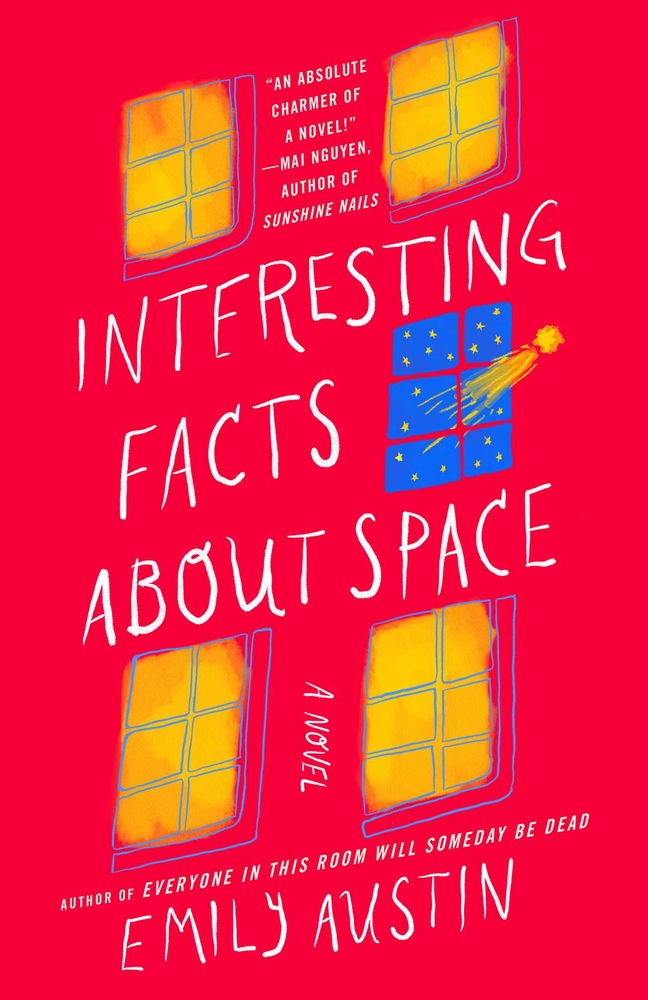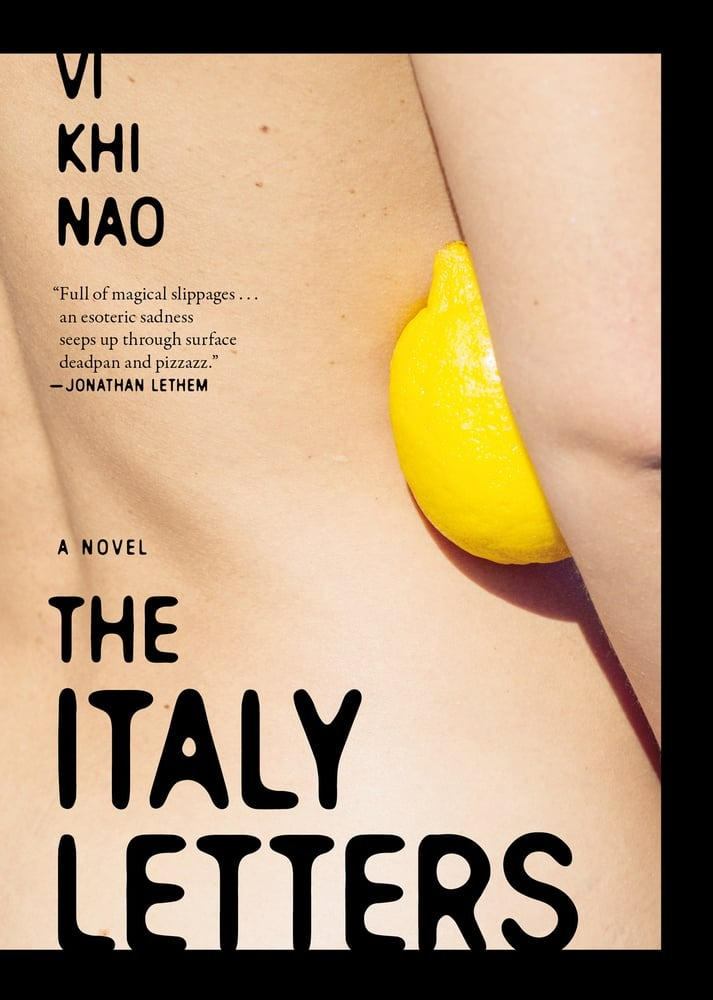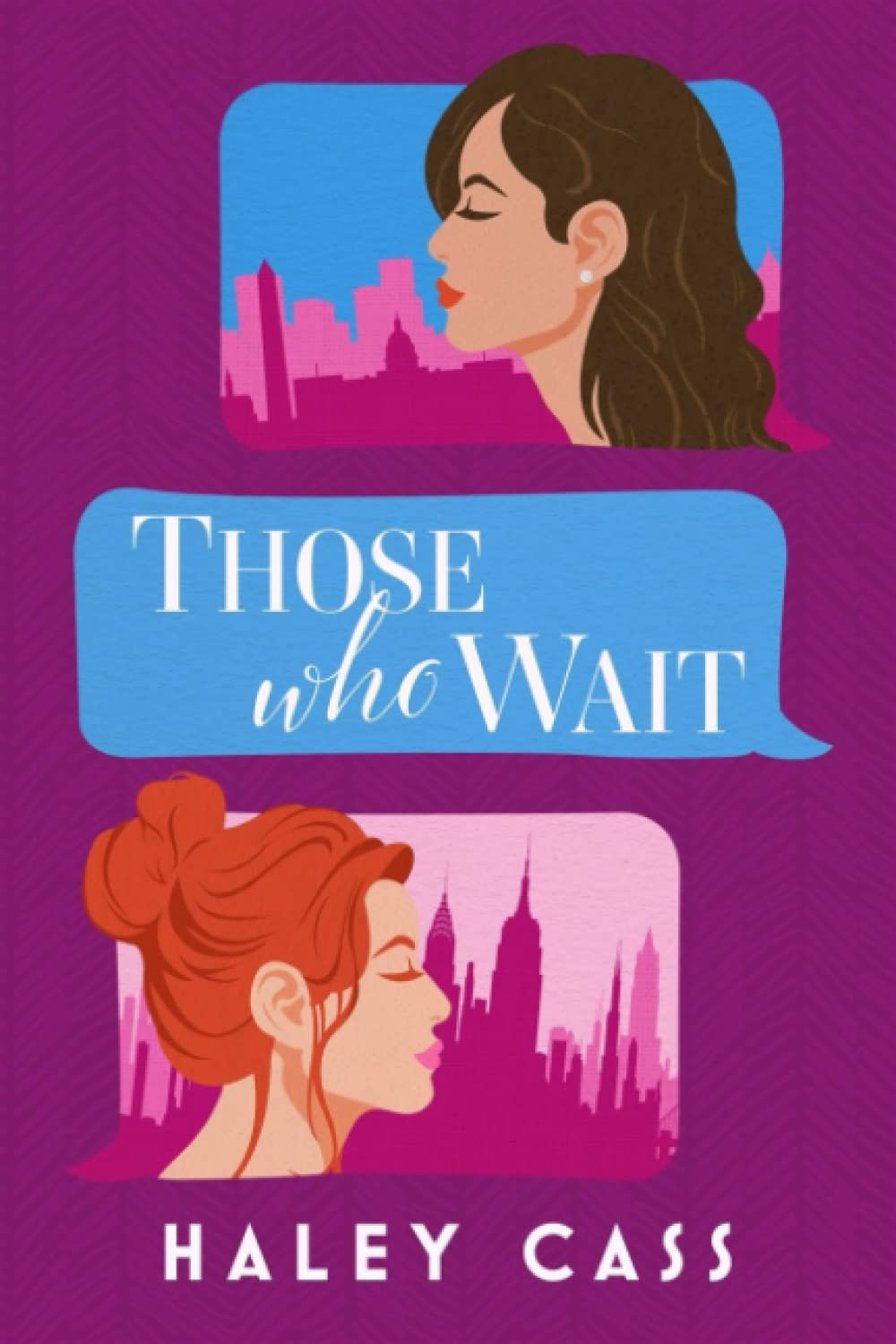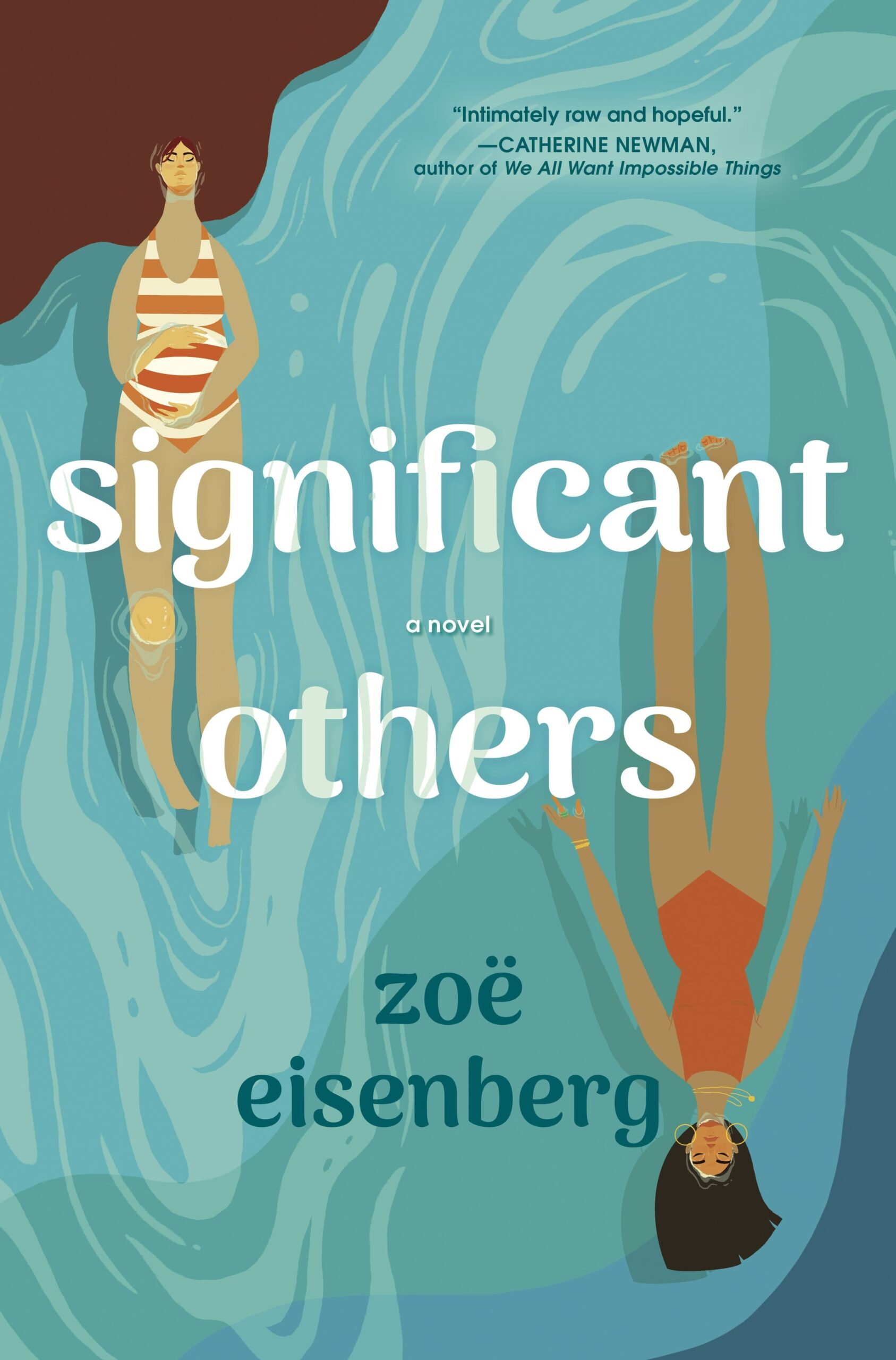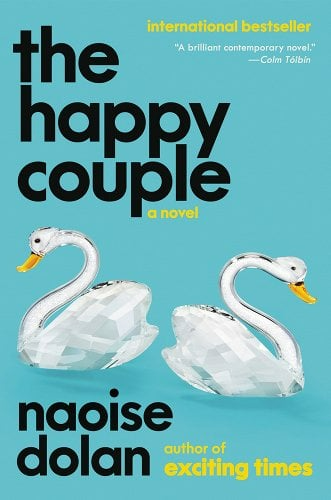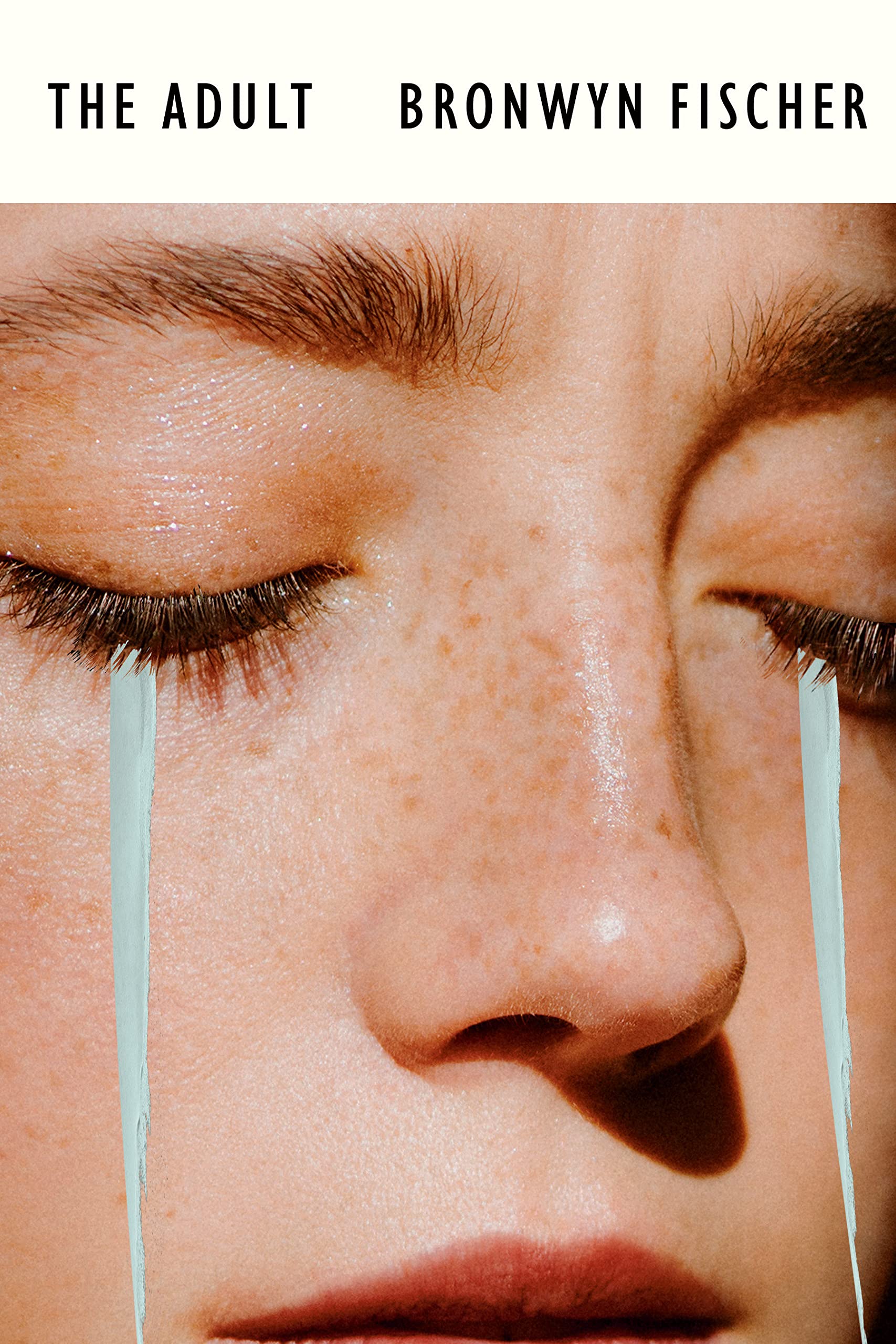Buy this from Bookshop.org to support local bookstores and the Lesbrary! Interesting Facts About Space by Emily Austin (she/her) is one of my new favorite books. Within the first few pages, Austin personified a tampon box, lamented the indignity of celebrating baby genitals (read: gender reveals), and made the astute, albeit morbid, observation that one of theRead More
The Beauty and Bitterness of Unrequited Love: The Italy Letters by Vi Khi Nao
Buy this from Bookshop.org to support local bookstores and the Lesbrary! The Italy Letters by Vi Khi Nao (August 13, 2024) reads like bitter chocolate with rich undertones that will pique the acquired tastes of readers looking for poetic experimental fiction and stories about the mid-life crises of disillusioned literary fiction writers who are not cishet whiteRead More
Making The Future Gay: The Five Things I Checked out From the Queer Liberation Library
Recently, a nonprofit in Massachusetts put out an exclusively queer book collection on Libby called the Queer Liberation Library (also known as QLL). Their mission is simple: by providing queer people with diversity-focused literature and resources, QLL is building a future that is undeniably queer. This collection of e-materials is available to anyone with an email address,Read More
An Epic, Slow Burn F/F Romance: The Senator’s Wife by Jen Lyon
Amazon Affiliate Link Since reading The Senator’s Wife, I’ve been thinking about what exactly my criteria is for rating a book with five stars. Anne of Green Gables is the first five-star book I ever read; Anne of Avonlea was, unsurprisingly, the second. The three books by Jeanette Winterson that were the subject of my undergraduate thesis—The Passion, Written on theRead More
A Bittersweet Portrait of Platonic Partnership: Significant Others by Zoe Eisenberg
Buy this from Bookshop.org to support local bookstores and the Lesbrary! Jess and Ren were college roommates, and they have been inseparable ever since. That’s acceptable in college, but much less common when you’re in your late 30s, have bought a house together, and co-parent a dog. They’re committed to each other, but not dating—JessRead More
A Page-Turning Mess of a Queer Love Polygon: The Happy Couple by Naoise Dolan
Buy this on Bookshop.org to support local bookstores and the Lesbrary! If you’re looking for something fun, marathonable, the right amount of messy, and full of queer love polygon drama, then look no further than The Happy Couple. I listened to this as an audiobook (a short and snappy 5.5 hour experience) and I foundRead More
The Perfect Sapphic September Read: The Adult by Bronwyn Fischer
Bookshop.org Affiliate Link The moody, fraught, and atmospheric energy of Bronwyn Fischer’s novel The Adult (Random House, 2023) is the perfect September read that reflects the joy and the chaos of a new academic year! The Adult follows Natalie, an eighteen-year-old student who has just arrived in Toronto to begin her first year of university. Moving from herRead More
Mermaid Obsession Story Treads Water: Chlorine by Jade Song
Bookshop.org Affiliate Link In their debut novel Chlorine, Jade Song (she/they) draws upon her twelve years of lived experience as a competitive swimmer to craft the dark and complex inner world of Ren Yu, a Chinese American teenager coming of age in Pennsylvania and stepping—or rather, swimming—into her true destiny: becoming a mermaid. While Song is clearlyRead More
A Fabulously Smart Summer Read: The Fake by Zoe Whittall
Amazon Affiliate Link | Bookshop.org Affiliate Link A short novel with a lot of heart and an unputdownable plot, Zoe Whittall’s The Fake (2023 Ballantine Books) is a fabulously smart story. The Fake follows Shelia and Gibson, two unconnected characters who are drawn unwittingly into the same oppressive scheme. Shelia is still reeling from the sudden death ofRead More
Danielle reviews Sirens & Muses by Antonia Angress
Amazon Affiliate Link | Bookshop.org Affiliate Link Sirens & Muses by Antonia Angress is a novel that follows four artists as they embark first on art school before conquering New York City. I loved everything about this novel. Everything. The characters are rich: Angress has done a phenomenal job of creating realistic characters who are not alwaysRead More
- 1
- 2
- 3
- …
- 15
- Next Page »
